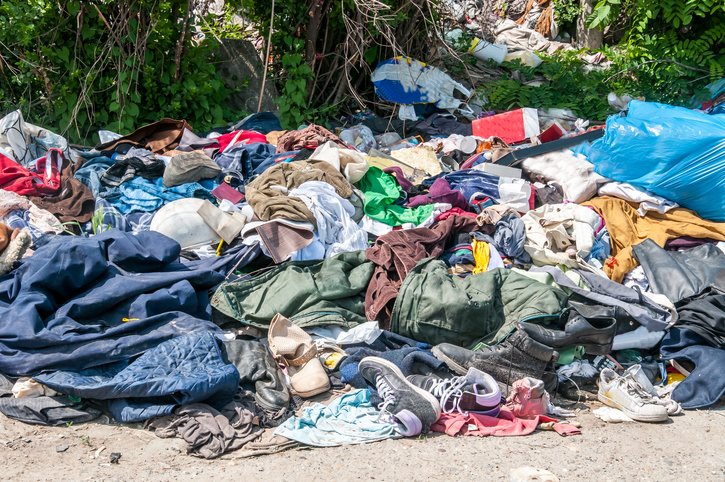Derailing fashion sector reform
The report argues that policymakers and customers alike are lulled into a false sense of security through these initiatives. This has resulted in systemic reforms being delayed and derailed, such as laws that would drive greater transparency and circularity.
The report shows how certification schemes are providing a licence to greenwash, allowing brands like Primark and Boohoo to escape accountability.
For example, Boohoo used its membership of initiatives such as the SAC, WRAP and The Microfibre Consortium to pull the wool over the eyes of the UK’s Environmental Audit Committee while under scrutiny over its 2020 slavery scandal, despite the schemes they cited being unambitious and underperforming.
‘The fashion industry can no longer be left to regulate itself. If we are ever going to see a true systemic shift, regulation and policy must hold brands accountable for their devastating contribution to the global climate, ecological and social crisis and their continued use of fossil fuels. Without this, the industry can never claim to be truly sustainable.’
SAFIA MINNEY MBE
Former Global CEO of People Tree & Founder of Fashion Declares!
Greenwash in fashion
Market research by the Changing Markets Foundation has found that one in three (34%) consumers in the UK are choosing to purchase items with green labels or certifications either frequently or always.
One in three also stated that they look upon certification schemes or third-party initiatives as trusted sources of information on brands’ green credentials, highlighting the need for the flaws of such schemes to be urgently addressed.
The Changing Markets Foundation is now also bringing the public’s attention to the fashion industry’s greenwashing tactics, including with the recent launch of greenwash.com.
The website underscores fashion’s greenwashing problem by showing consumers just how widespread it is across products, projects and adverts from fast fashion, high street retailers and luxury brands.
A strategy for sustainable textiles
The report comes ahead of the EU strategy for sustainable textiles, due to be published on 30 March, that will address the overconsumption and waste produced by the industry as a result of fast fashion.
The strategy will aim to create a more circular model, as the textile sector is currently the EU’s fourth-highest pressure category (after food, housing and transport) in terms of its use of primary raw materials and water. It’s also one of the most wasteful.
Currently, Europeans consume on average 26kg of textiles per person per year. As each piece is used for only a short period of time, this results in over 11kg of textiles being discarded per person per year.
This new report recommends that all but the most ambitious schemes should be abolished, and the industry should instead focus on ushering in ambitious mandatory requirements through legislation.
Any remaining voluntary programmes should remove conflicts of interest, strive for impartiality, embrace a more holistic approach to the whole lifecycle of products and require brands to transparently publish information, which needs to be audited by a third party.
 Play Video about This Rock Might Just Save The World
Play Video about This Rock Might Just Save The World Play Video about Play 2 hours of rock
Play Video about Play 2 hours of rock Play Video about Play 2 hours of brook
Play Video about Play 2 hours of brook Play Video about Play 2 hours of sheep
Play Video about Play 2 hours of sheep











































